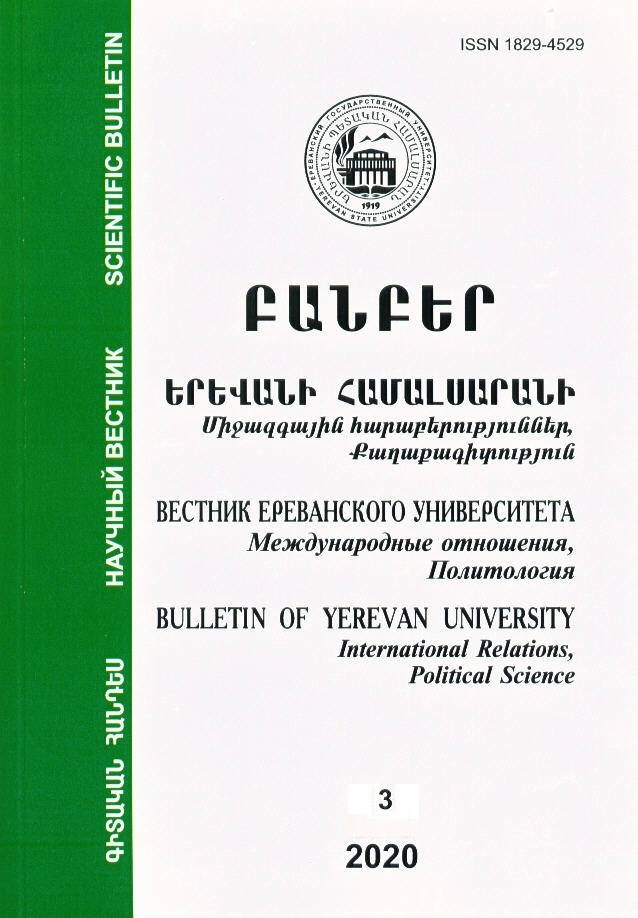The Essence of the Chinese "Soft Power" Concept
DOI:
https://doi.org/10.46991/BYSU:D/2021.12.1.073Keywords:
soft power, culture, soft power of culture, values, political norms, political culture, spiritual and moral educationAbstract
The key element of modern China's "soft power" is culture. In the mid-2000s the Chinese government declared a policy of strengthening the potential of cultural "soft power", which might be not only an instrument for forming a positive attitude towards the country on the foreign audience, but also a way to mobilize Chinese people as well. This policy should help strengthen China's "soft power" and extend its influence on the international arena. Currently two approaches of China's "soft power" have emerged among Chinese researchers: "cultural" and "political". However, despite the differences between them, the Chinese political and intellectual elite have an intention to combine politics and culture in the "soft power" concept and transform "soft power" inside the country into the economic, political and cultural power. In addition, there is understanding of that politics and culture complement each other and form the combined strength of China's "soft power", where culture is the core, and politics is the instrument, which translates the cultural content.


